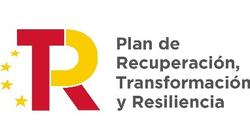MOYSEST
The current reality shows a technological evolution of the transport sector towards more sustainable solutions, moving away from the use of hydrocarbons, and rail transport expects a great growth because it is strategic in global logistics and inter-territorial structuring.
However, communication and control systems, especially 'train-ground' ones, are based on 1st and 2nd generation technologies, from analog to digital narrowband radio, especially GSM-R (evolution of the 3GPP GSM standard for railway environment) or ETSI TETRA and DMR (international radiocommunication standards), among others. The current scenario presents a level of obsolescence, lack of interoperability, and substantial functional limitations for the evolution of the sector to the next level of efficiency and sustainability, being unable to provide real-time video surveillance services, full autonomous driving, or allow the coexistence of mission-critical and non-critical applications, also establishing a serious limitation in the life expectancy of the systems as there is a totally limited range of suppliers and proprietary solutions.
Likewise, these previous technologies did not include proposals for solutions or mitigation of cybersecurity threats, which prevents a full integration of operational processes between different subsystems of a railway operator in which information technologies (IT) and operation technologies (OT) coexist. The recent standardization and progressive availability of fifth generation technology (3GPP 5G) eliminates the aforementioned evolutionary barriers, and becomes an enabling element for a new generation of train-ground communication systems, an opportunity around which the MoySEST initiative is being developed.
The MoySEST project is an experimental development program focused on the technological evolution of critical broadband communications through optimized 5G technology - in public, private network environments and hybrid models - to provide support for sectoral transport applications, and especially the new standardized and interoperable FRMCS (Future Railway Mobile Communication System) as part of the 3GPP MCX (Mission Critical Services) family of specifications, to enable efficient (improved latency, link robustness, versatility), interoperable, next-generation train-to-ground communication, and with the cybersecurity guarantees provided for in the new legislative framework foreseen for the operation of 5G networks in Spain.
MoySEST sets out a series of objectives and initiatives to achieve the expected results through: (i) the functional adequacy of 5G technology to provide support for mission critical services in rail transport, (ii) ensuring quality of service in 5G networks through AI algorithms, (iii) implementing an end-to-end architecture that is interoperable and based on international standards, iv) consider different deployment models on private, public or hybrid 5G networks, v) incorporate cybersecurity measures in full alignment with the 5G Cybersecurity Law in Spain and the National Security Scheme, and vi) validate the results in a representative way in the form of a simulated field pilot, installing a demonstrator system with conclusive capacity.
The MoySEST initiative will favor and accelerate the digital transformation of the transport sector in our country and, given the high degree of standardization and interoperability of its elements, will promote the dissemination and replicability of results at international level, also ensuring the incorporation of these in future recommendations and guidelines at international level, enhancing the visibility of the Spanish technological business network, and the country's own brand.
Project in collaboration with:



Project financed by:


